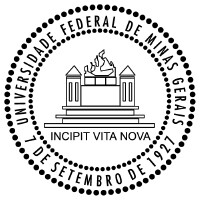About Universidade federal de minas gerais
Universidade Federal de Minas Gerais: A Leader in Free Higher Education, Research, and Innovation
The Universidade Federal de Minas Gerais (UFMG) is a renowned public university located in the state of Minas Gerais, Brazil. Established in 1927, UFMG has become a leading institution of higher education and research not only in the region but also nationally and internationally. With its commitment to providing free education to all students regardless of their socioeconomic background, UFMG has become a symbol of social inclusion and academic excellence.
UFMG offers undergraduate and graduate programs in various fields of knowledge such as arts, humanities, social sciences, natural sciences, engineering, health sciences among others. The university's academic structure comprises 27 faculties that are responsible for teaching and research activities. These faculties are organized into five major areas: Exact Sciences; Biological Sciences; Health Sciences; Humanities; Social Sciences Applied.
One of the distinctive features of UFMG is its strong emphasis on research activities that aim to generate new knowledge and contribute to solving societal problems. The university has over 100 research groups that work on diverse topics such as biodiversity conservation, renewable energy sources development, urban planning and management strategies among others. In addition to these groups' activities at the local level within Brazil's borders or abroad through international partnerships with other universities or institutions worldwide.
Another important aspect that sets UFMG apart from other universities is its commitment to promoting cultural diversity through various initiatives such as art exhibitions concerts lectures workshops seminars conferences among others. These events provide opportunities for students faculty staff members researchers artists scholars from different backgrounds cultures countries regions around the world come together share their experiences perspectives ideas insights about various issues related culture society politics economy environment science technology innovation creativity entrepreneurship among others.
Moreover UFMG has been recognized for its contribution towards generating patents intellectual property rights (IPR) which have resulted from innovative projects developed by researchers faculty members students alumni partners collaborators across different fields knowledge sectors industries markets etc.. These patents IPRs have been instrumental creating economic value jobs wealth society country region world large.
In terms infrastructure facilities resources UFMG boasts modern well-equipped laboratories classrooms libraries computer centers sports centers museums theaters auditoriums gardens parks green areas etc.. All these spaces designed provide conducive learning working environments where individuals can thrive grow develop their full potential capacities skills talents abilities competencies qualities attributes values attitudes behaviors ethics morals principles beliefs goals aspirations dreams visions missions purposes objectives targets outcomes impacts benefits advantages gains welfare wellbeing happiness satisfaction fulfillment meaning purposeful lives careers professions vocations callings passions hobbies interests hobbies leisure time activities etc..
To sum up Universidade Federal de Minas Gerais stands out as an institution committed providing high-quality free education all individuals who seek it regardless their background circumstances conditions limitations challenges obstacles barriers difficulties hardships adversities setbacks failures mistakes errors weaknesses vulnerabilities fears doubts uncertainties insecurities anxieties stresses pressures tensions conflicts dilemmas paradoxes contradictions complexities ambiguities contingencies risks threats dangers crises emergencies disasters pandemics epidemics wars conflicts terrorism violence crime corruption injustice inequality discrimination prejudice oppression exploitation abuse neglect marginalization exclusion isolation loneliness alienation fragmentation disintegration loss grief trauma suffering pain illness disability death dying bereavement mourning spirituality religion faith belief non-belief atheism agnosticism humanism secularism rationalism skepticism empiricism pragmatism realism idealism existentialism phenomenology hermeneutics postmodernism feminism environmental ethics animal rights bioethics medical ethics business ethics leadership ethics global governance peace studies conflict resolution sustainable development social responsibility citizenship engagement activism advocacy philanthropy volunteering charity solidarity compassion empathy altruism kindness generosity hospitality forgiveness gratitude humility authenticity integrity courage resilience adaptability flexibility creativity innovation curiosity critical thinking problem-solving communication collaboration teamwork leadership emotional intelligence self-awareness self-regulation motivation goal-setting time-management stress-management conflict-management decision-making ethical reasoning aesthetic appreciation cultural awareness intercultural competence cosmopolitan outlook lifelong learning continuous improvement personal growth professional development community service civic engagement democratic participation global citizenship planetary consciousness ecological awareness spiritual awakening transcendence enlightenment liberation salvation redemption transformation evolution progress hope optimism joy celebration love friendship family relationships romantic relationships sexuality gender identity sexual orientation parenthood childhood adolescence adulthood aging death dying bereavement mourning spirituality religion faith belief non-belief atheism agnosticism humanism secularism rationalism skepticism empiricism pragmatism realism idealis
